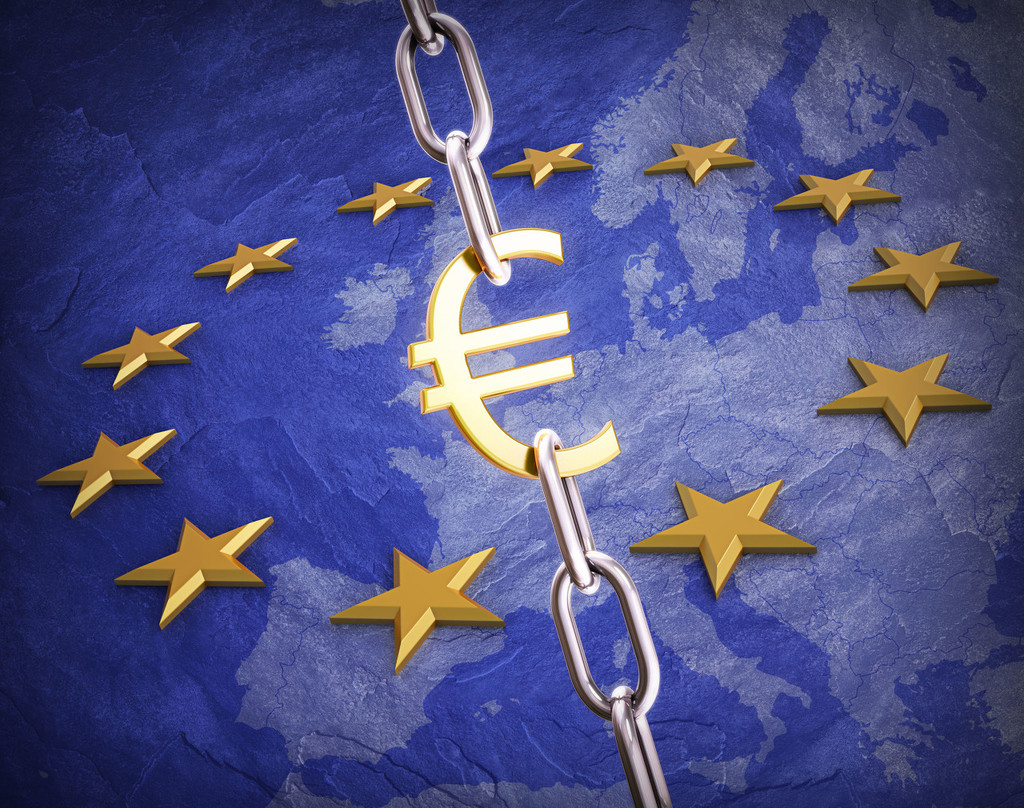EU may fine Italy over rising debt
By JONATHAN POWELL | China Daily Global | Updated: 2019-06-14 09:30

European Commission mulls steps that will see the country's finances being monitored
When the European Commission concluded last week that it was warranted in bringing an "excessive-deficit" procedure against Italy, it opened the possibility that, if no compromise is reached, the nation could end up facing a multibillion euro fine.
The commission found that the nation's public debt stood at more than 132 percent of GDP in 2018, far above the European Union's 60 percent limit. Italy's debt ratio is the second-biggest in the eurozone after Greece.
European Commission head Jean-Claude Juncker warned that Italy was on the verge of entering into the excessive deficit procedure "for years" if reforms were not adopted.
The commission warned that a "snowball effect" was likely to see the situation worsen in 2019 and 2020, and recommended legal action, which would mean Italy's finances being more closely monitored by Brussels.
The final decision on whether to open proceedings against Italy could be taken by EU finance ministers and heads of government next week.
The "excessive-deficit" procedure is an action launched by the commission against any EU member state that exceeds the budgetary deficit ceiling imposed by the EU's stability and growth pact legislation.
Such a procedure would increase tensions between Brussels and Rome, but should help to keep Italy's government finances under control, at least in the short term.
Italian Prime Minister Giuseppe Conte this week sought to portray his populist government as being united in its tussle with the EU, saying his coalition deputies Matteo Salvini and Luigi Di Maio agree an infringement procedure on debt must be avoided at all costs.
The alternative, Conte said, would expose the country to "hard-to-contain market jitters and eventually put Italy in a position of constant scrutiny".
Financial markets were largely unaffected by the commission's report released on June 5, but investor confidence has been hurt by the coalition's first year in power. Italian economists noted that at the start of 2018, the government could borrow at roughly the same interest rate as Spain. Now, the interest rate on a ten-year bond is nearly two percentage points higher.
Valentino Larcinese, professor of public policy at the London School of Economics, told China Daily that investor confidence is a bigger concern than any fine that could be imposed.
"The confidence of investors is very important to keep interest rates low and therefore not to create further burden on the already strained public finances," Larcinese said.
Larcinese said he doubts that the EU budgetary rules are even appropriate, or even reasonable.
"Changing senseless budgetary rules is actually what the EU needs(to do) but it's hard to anticipate how reasonable people in Brussels will be."
"EU budgetary rules are not very transparent and rather arbitrary. What is the economic foundation for a 60 percent ceiling to the debt-GDP ratio? None.
"Moreover, this ratio was fixed at a time of higher interest rates. In the current situation of low interest rates, a higher debt is sustainable compared with 20 years ago.
"The Italian government seeks, legitimately in my view, some fiscal space, considering that 25 years of fiscal austerity, or primary budget surplus, has not helped the Italian economy and not even reduced its debt. We will see in the coming weeks whether there is a political will to isolate Italy in Europe."
Italy's governing coalition is trying to avoid public spending cuts and tax increases. The dominant coalition partner, the right-wing party the League, has promised to cut taxes and has proposed a heavy-spending budget for 2020.
The League's leader Salvini has called the EU's budget rules "obsolete," and plans to introduce those major tax cuts that will only increase the deficit.
"I'm sure that in Brussels they will respect our will," said Salvini. "The only way to cut the debt created in the past is to cut taxes."
Salvini believes that even if no concessions are made, an EU fine is a long way off, as even if a procedure is formally opened, the commission would first ask Italy to take corrective steps.
Brussels has never actually fined a rule breaker, though in principle any fine could be as high as 0.2 percent of GDP, or 3.5 billion euro ($4 billion).
Di Maio, who heads the ruling Five Star Movement party, on Tuesday met with Salvini and Conte to discuss the threat of EU action. The trio hopes for compromise with the EU.
Rome would seek "a dialogue" with the EU over its next budget, said Di Maio.
"We will need a dialogue with Europe but also a firm stance. I'm not interested in fighting with the EU but we must get the results which Italians are interested in."
A formal disciplinary procedure will not happen before EU leaders meet at a European Council summit on June 20. The leaders could be appeased with some minor concessions, similar to those Italy's government made in 2018 when legal action was threatened over this year's budget.
"Let's not forget that Italians have been historically among the most Europhile people in the EU," said Larcinese.
"All this has changed after the financial crisis and Italy today is more Eurosceptic than the UK. Given the very high levels of Euroscepticism among Italian voters, I think Italian politicians might have all the incentives not to submit this time. The best hope is that reason will prevail on both sides."
























